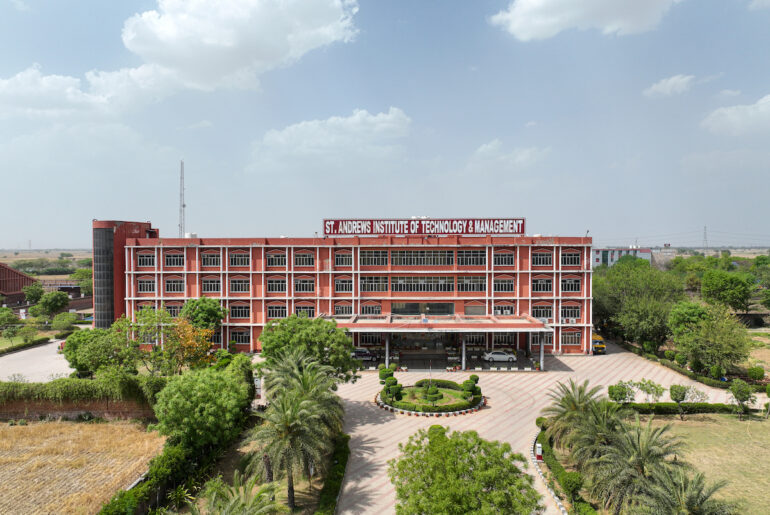Bachelor of Engineering in Computer Science
A Bachelor of Engineering in Computer Science is a four-year undergraduate degree focusing on the principles and technologies of computing. The program encompasses a broad range of topics, including programming, data arrangements, algorithms, network systems, data management, data analysis
, software development, ai, and cybersecurity. Students gain both theoretical knowledge and practical skills through coursework, lab sessions, and projects.
The curriculum often includes foundational courses in mathematics and physics, as well as specialized computer science subjects. Practical experience is emphasized, with opportunities for internships, co-op programs, and industry collaborations. Many programs also offer electives allowing students to delve deeper into specific areas of interest, such as automated learning, blockchain technology, or human-computer interaction.
Graduates of a Bachelor of Engineering in Computer Science are equipped to pursue diverse career paths, including roles as software developers, system analysts, web developers, data scientists, computer engineers, network engineers, and cybersecurity experts. They are also well-prepared for further studies, such as a Master’s or Ph.D. in computer science or related fields. The degree opens doors to careers in various sectors, including technology, finance, healthcare, and education, where computational expertise is increasingly vital.
Some of the most opted courses in India and St. Andrews college or different Engineering college or Management colleges are as follows:-
Computer Science Engineering Course Duration
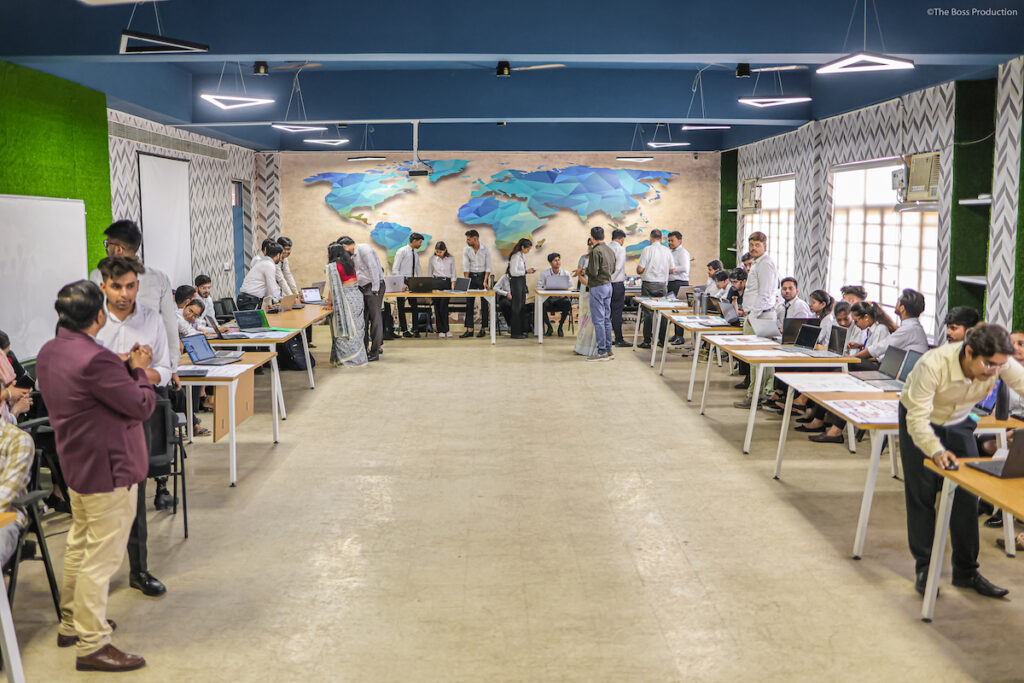
Computer Science Engineering Courses typically takes 3 to 4 years, covering foundational and specialized topics in computer science.
A Master’s degree (M.Sc./M.E/MTech) usually lasts 1 to 2 years, focusing on advanced studies and research.
A Ph.D. in Computer Science typically requires 3 to 6 years, involving original research and a dissertation.
Additionally, diploma and certificate programs range from a few months to a year, targeting specific skills or technologies for professional development. These durations can differ based on the program, institution, and country of study.
Highlights of Computer Science Engineering Course
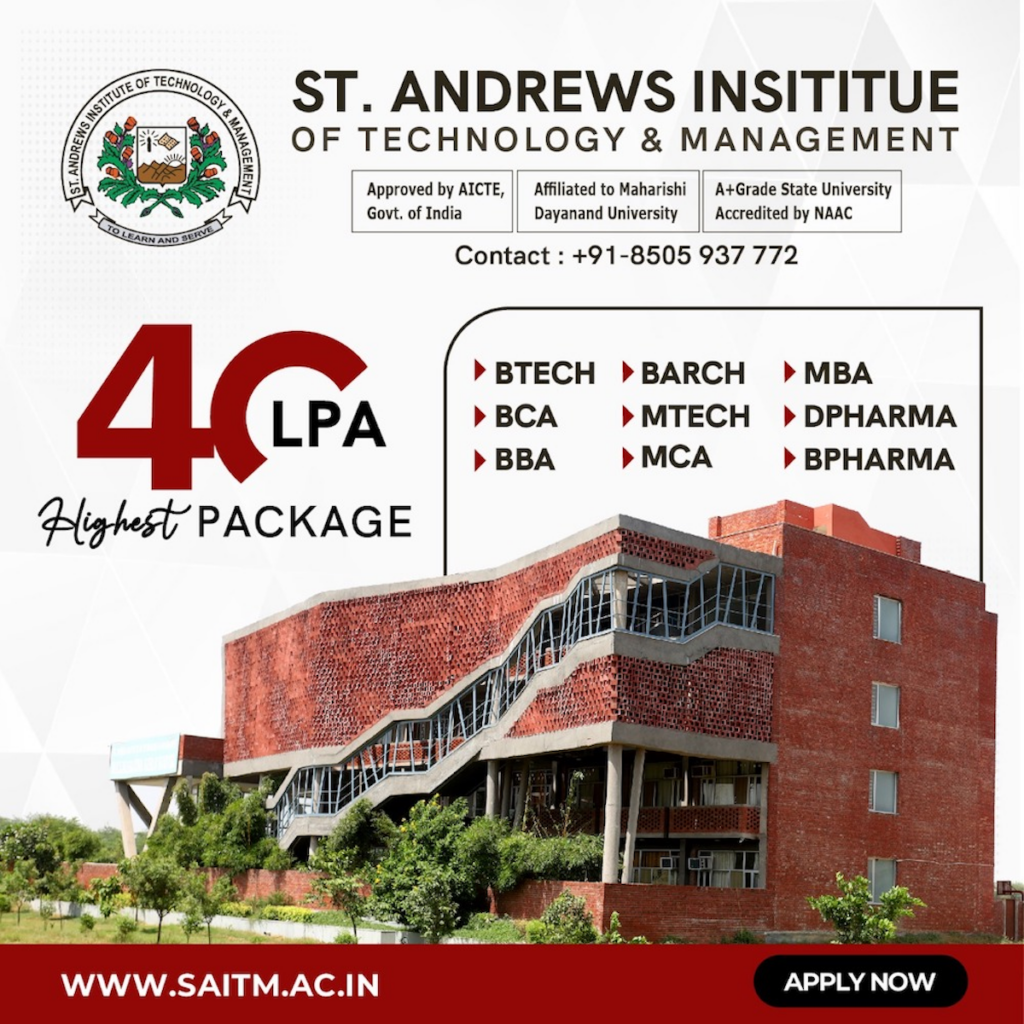
Core Subjects
- Programming Languages: Mastery of languages like Java, C++, Python, and JavaScript.
- Data Structures and Algorithms: Fundamental principles for efficient data organization and problem-solving.
- Database Management: Skills in SQL and NoSQL databases, understanding of data storage, and retrieval.
- Operating Systems: In-depth knowledge of OS concepts, processes, threads, and memory management.
- Computer Networks: Networking principles, computer networking, protocols, and security.
Specialized Topics
- Artificial Intelligence & Machine Learning: Techniques for developing intelligent systems and learning algorithms.
- Cybersecurity: Principles of securing systems, cryptography, network security, and ethical hacking.
- Software Engineering: Best practices in application development, project management, and version control.
- Web Development: Front-end and back-end development, web frameworks, and responsive design.
- Mobile Application Development: Building applications for iOS and Android platforms.
Practical Experience
- Laboratory Work: Hands-on labs for practical understanding and implementation of theoretical concepts.
- Projects: Individual and group projects to solve real-world problems and build robust applications.
- Internships: Opportunities to gain industry experience and apply skills in a professional setting.
Research and Development
- Encouragement of innovation and research through projects, papers, and collaboration with faculty.
Industry Exposure
- Workshops, seminars, and guest lectures by industry experts.
- Collaboration with tech companies for practical insights and job placements.
Career Opportunities
- Diverse roles in application development, data science, network engineering, and more.
- Pathways to higher studies, such as Master’s or Ph.D. programs.
Interdisciplinary Learning
- Integration with other fields like mathematics, physics, electronics, and business to provide a well-rounded education.
Ethical and Social Responsibility
- Courses and projects that emphasize the ethical implications of technology and its impact on society.
Importance of BE in Computer Science

Here are some key reasons why a BE in Computer Science is important:
Foundation of Knowledge
Core Concepts: Provides a solid foundation in computer science principles, including algorithms, data arrangements, programming languages, computer architecture, and operating systems.
Theoretical and Practical Skills: Balances theoretical knowledge with practical skills through labs, projects, and internships.
Career Opportunities
High Demand: There is a high demand for computer science professionals across various industries, including technology, finance, healthcare, and more.
Diverse Roles: Graduates can pursue roles such as software developer, data scientist, cybersecurity analyst, systems engineer, and more.
Innovation and Problem-Solving
- Innovation: Encourages innovation and creativity in developing new technologies, applications, and solutions.
- Problem-Solving: Equips students with problem-solving skills to tackle complex technical challenges.
Economic Growth and Development
- Industry Impact: Computer science professionals contribute to advancements in technology, driving economic growth and development.
- Entrepreneurship: Many graduates start their own tech companies or contribute to startups, fostering innovation and job creation.
Interdisciplinary Applications
- Cross-Disciplinary Integration: Computer science integrates with various fields such as ai, data science, bioinformatics, and more.
- Versatility: Skills acquired can be applied to solve problems in diverse areas like healthcare, education, transportation, and entertainment.
Global Opportunities
- International Demand: Computer science skills are in demand globally, providing opportunities for international careers and collaborations.
- Remote Work: Many computer science roles offer the flexibility of remote work, allowing professionals to work from anywhere in the world.
Continuous Learning and Growth
- Ever-Evolving Field: The field of computer science is constantly evolving with new technologies and advancements, encouraging continuous learning and growth.
- Professional Development: Opportunities for further studies and certifications in specialized areas like automated learning, cybersecurity, and cloud computing.
Social Impact
- Positive Change: Computer science can be used to develop solutions for societal challenges, such as improving healthcare, enhancing education, and addressing environmental issues.
- Digital Inclusion: Helps bridge the digital divide by creating technologies that are accessible to a wider population.
Competitive Salaries
- Lucrative Careers: Computer science professionals often enjoy competitive salaries and benefits, reflecting the high demand and value of their skills.
Job Security
- Stable Employment: The continuous growth of the tech industry ensures stable employment opportunities for computer science graduates.
Eligibility Criteria for BE in Computer Science

Here is the general requirements across most colleges and universities include the following:
General Eligibility Criteria
Educational Qualification
- 10+2 Examination: Candidates must have completed their 10+2 or equivalent examination from a recognized board.
- Mandatory Subjects: Physics, Chemistry, and Mathematics (PCM) are typically required subjects in the qualifying examination.
Minimum Marks
- Aggregate Score: Candidates generally need a minimum aggregate score in their 10+2 examination. This varies by institution but is usually around 50-60% for the general category. There may be relaxation for reserved categories (SC/ST/OBC).
- Individual Subject Scores: Some institutions may also have specific minimum marks requirements in individual subjects like Physics, Chemistry, and Mathematics.
Entrance Examinations
- National Level Exams: Performance in national-level entrance exams like the Joint Entrance Examination (JEE) Main and/or JEE Advanced.
- State Level Exams: Performance in state-level entrance exams such as MHT-CET (Maharashtra), KCET (Karnataka), WBJEE (West Bengal), etc.
- Institution-Specific Exams: Some private institutions conduct their own entrance exams, such as BITSAT (BITS Pilani), VITEEE (VIT Vellore), SRMJEEE (SRM Institute of Science and Technology), etc.
Age Limit
- Age Criteria: Some institutions have an upper age limit for applicants, typically around 25 years for the general category, with possible relaxations for reserved categories.
Other Criteria
- Nationality: Candidates must usually be citizens of the country, although some institutions also have provisions for NRIs (Non-Resident Indians) and foreign nationals.
- Physical Fitness: Some institutions may require a medical certificate confirming the candidate’s physical fitness.
Admission Process for BE in Computer Science

The admission process for a Bachelor of Engineering typically involves the following steps. To pursue a Bachelor of Engineering in Computer Science, applicants generally need to follow these steps:
Eligibility Criteria
Candidates must usually have completed their higher secondary education (12th grade) with a strong foundation in Mathematics, Physics, and Chemistry. Specific eligibility criteria may vary by institution.
Entrance Examinations
Many colleges and universities conduct entrance exams for admission into their BE programs. Some common entrance exams in India include JEE Main, BITSAT, VITEEE, etc. These exams test candidates’ knowledge in subjects like Mathematics, Physics, and Chemistry.
Application Process
After clearing the entrance exam, candidates need to apply to their desired colleges or universities. This involves filling out application forms online or offline, submitting required documents (like mark sheets, identity proof, etc.), and paying application fees.
Counseling and Seat Allotment
For institutes that conduct counseling, candidates are called based on their exam ranks for counseling sessions. During counseling, seats are allotted based on merit and choices filled by candidates.
Document Verification:
Once a seat is allotted, candidates must undergo document verification to ensure all submitted information and documents are authentic.
Fee Payment
After document verification, candidates need to pay the requisite admission fees to confirm their seat in the college.
Commencement of Classes
Finally, admitted students join the college as per the academic schedule for the BE program.
Specializations in Computer Science Engineering

Some common specializations in Computer Science Engineering include:
Artificial Intelligence and Machine Learning
Focuses on developing systems that can perform tasks that typically require human intelligence, such as speech recognition, decision-making, and learning.
Data Science and Big Data Analytics
Involves the study of extracting insights and knowledge from large volumes of data using various techniques and algorithms.
Cybersecurity
Focuses on protecting computer systems, networks, and data from cyber threats, including hacking, data breaches, and cyber-attacks.
Software Development
Concentrates on the principles and techniques related to designing, developing, testing, and maintaining software systems.
Cloud Computing
Involves the study of delivering computing services (like servers, storage, databases, networking, software, etc.) over the internet (“the cloud”) to offer faster innovation, flexible resources, and economies of scale.
Computer Networks
Focuses on the design and implementation of networks that allow computers to communicate with each other, including topics like network protocols, routing algorithms, and network security.
Mobile Computing
Concentrates on developing applications and systems for mobile devices such as smartphones and tablets, including mobile app development and optimization.
Game Development
Involves the study of creating video games, including designing game mechanics, developing game engines, and programming game systems.
Internet of Things (IoT)
Focuses on designing and developing systems where everyday objects are connected to the internet, enabling them to send and receive data.
Blockchain Technology
Concentrates on the study of blockchain, a decentralized and distributed digital ledger technology used to record transactions across multiple computers securely.
Computer Science Engineering Syllabus and Subjects

Here’s a detailed breakdown of the common subjects you can expect to study throughout a CSE program:
First Year
- Mathematics – I
- Physics
- Chemistry
- Engineering Mechanics
- Basic Electrical Engineering
- Basic Electronics Engineering
- Programming in C
- Environmental Studies
Second Year
- Mathematics – II
- Data Arrangements
- Digital Electronics
- Computer Organization and Architecture
- Object-Oriented Programming (using languages like Java or Python)
- Database Management Systems
- Operating Systems
- Discrete Mathematics
Third Year
- Design and Analysis of Algorithms
- Network Systems
- Theory of Computation
- Application Development
- Compiler Design
- Web Technologies
- AI and Automated Learning
- Cybersecurity and Cryptography
- Numerical Methods
Fourth Year
- Advanced Topics in Computer Science (specialization electives)
- Project Work
- Industrial Training or Internship
- Seminar Presentations
- Electives (depending on specialization and interests)
Elective Specializations (Fourth Year)
- Cloud Computing
- Internet of Things (IoT)
- Big Data Analytics
- Mobile Computing
- Human-Computer Interaction
- Robotics
- Game Development
- Blockchain Technology
Additional Components
- Practical Sessions/Lab Work associated with programming, computer programming, data arrangements, and hardware interfacing.
- Projects to apply learned concepts to real-world problems.
- Seminars and presentations to enhance communication and presentation skills.
Entrance Exams for BE in Computer Science

Some of the major entrance exams include:
Joint Entrance Examination Main (JEE Main)
Conducted by the National Testing Agency (NTA) for admission to undergraduate programs in NITs, IIITs, and other centrally funded technical institutions, as well as some state-funded institutions.
BITS Admission Test (BITSAT)
Conducted by the Birla Institute of Technology and Science (BITS) for admission to its integrated first-degree programs, including BE in various disciplines, at its campuses in Pilani, Goa, and Hyderabad.
Vellore Institute of Technology Engineering Entrance Examination (VITEEE)
Conducted by VIT University for admission to its various undergraduate engineering programs, including BE in Computer Science.
COMEDK UGET (Consortium of Medical, Engineering and Dental Colleges of Karnataka Under Graduate Entrance Test)
Conducted for admission to private engineering colleges in Karnataka, including BE programs in Computer Science.
State-level Entrance Examinations
Many states conduct their own entrance exams for admission to engineering colleges within the state. Examples include MHT-CET (Maharashtra), AP EAMCET (Andhra Pradesh), TS EAMCET (Telangana), KCET (Karnataka), etc.
University-specific Entrance Exams
Some universities conduct their own entrance exams for admission to their BE programs. For example, IPU CET (Guru Gobind Singh Indraprastha University Common Entrance Test) for Guru Gobind Singh Indraprastha University, Delhi.
Top Government Computer Science Engineering Colleges
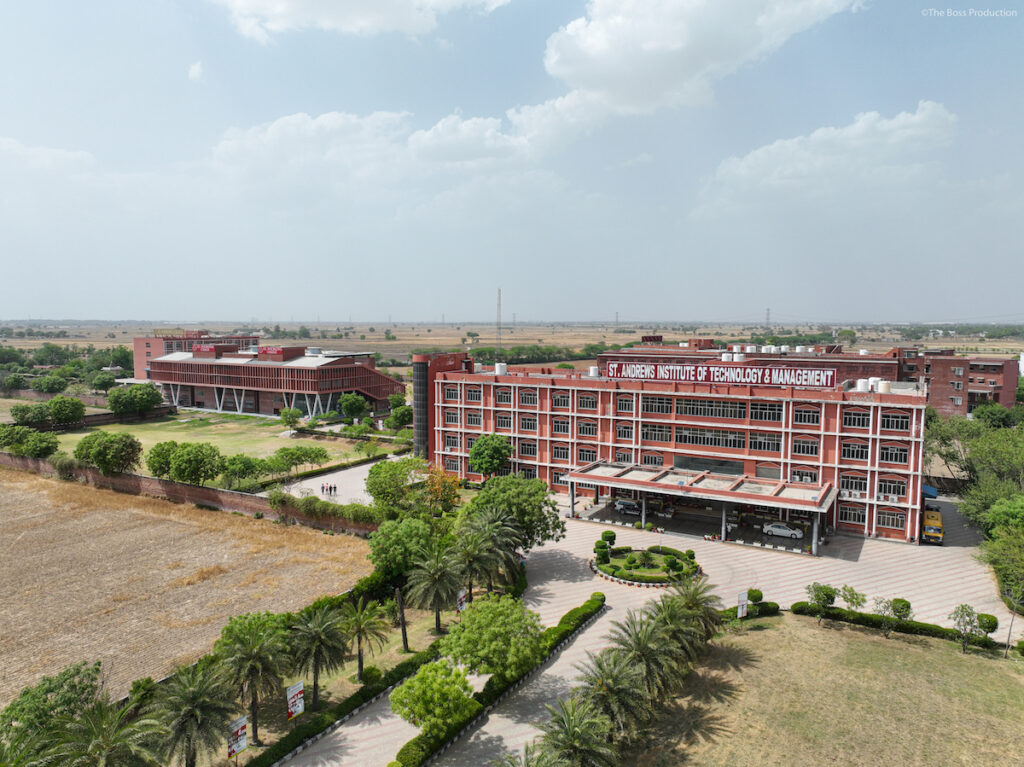
Here are some of the top government computer science colleges in India:
Delhi Technological University (DTU), Delhi
- Provides a robust computer science program with excellent placement opportunities.
St. Andrews Institute of Technology and Management (SAITM), Gurgaon
- Known for its academic rigor and strong alumni network.
Jadavpur University, Kolkata
- Offers a high-quality computer science program with numerous research opportunities.
- Renowned for its comprehensive curriculum and strong industry connections.
Birla Institute of Technology and Science (BITS), Pilani (Government-Funded)
- Offers a high-quality computer science program with excellent academic and research opportunities.
Punjab Engineering College (PEC), Chandigarh
- Known for its academic excellence and strong placement records.
Top Private Colleges for BE in Computer Science
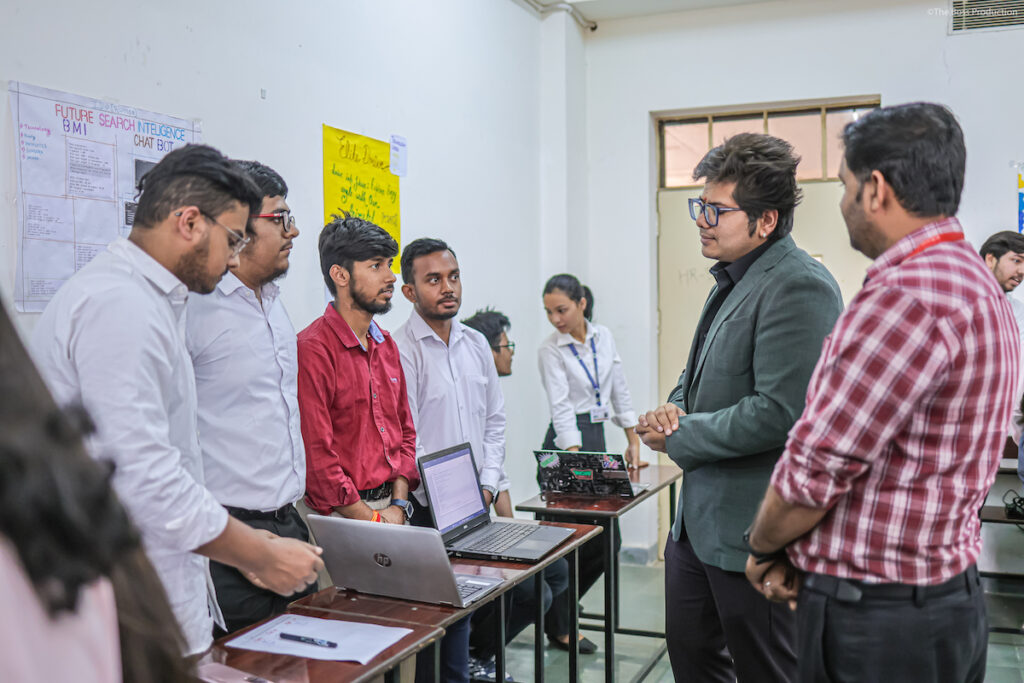
Here are some of the top private computer science colleges in India:
Birla Institute of Technology and Science (BITS), Pilani
- Location: Pilani, Rajasthan
- Highlights: Renowned for academic excellence and research and strong industry connections and excellent placement records
St. Andrews Institute of Technology and Management (SAITM), Gurgaon
- Location: Haryana, Gurgaon
- Highlights: Large, beautiful campus with modern facilities and excellent placement records with top multinational companies
Thapar Institute of Engineering and Technology, Patiala
- Location: Patiala, Punjab
- Highlights: Strong focus on research and innovation and good placement records
Career Scope for Computer Science Engineers
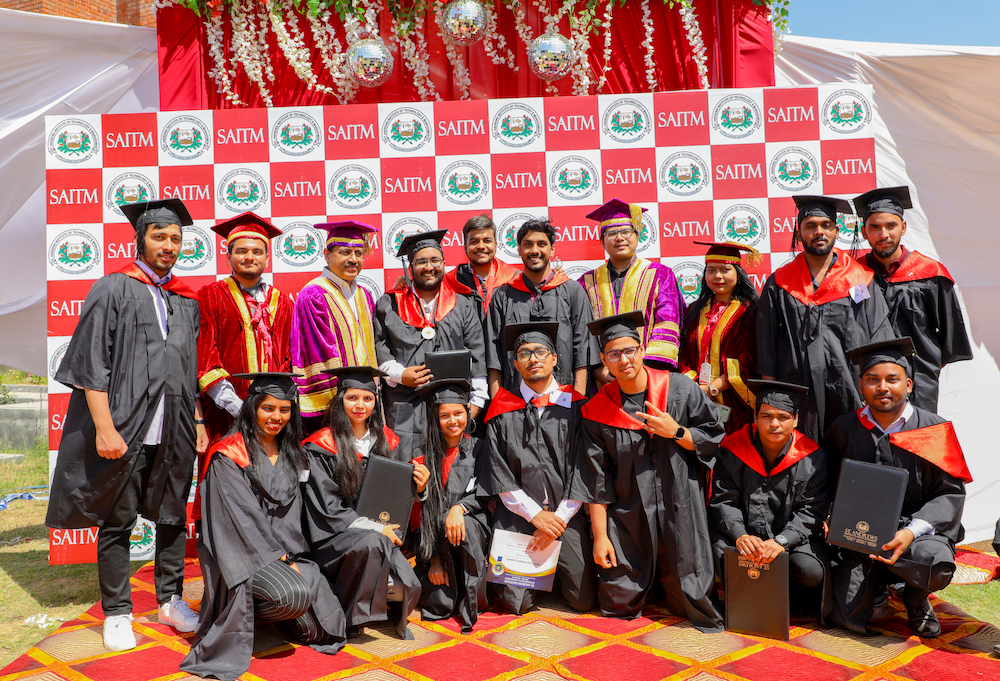
Some prominent career paths and opportunities in computer science engineering include those available to graduates with a Bachelor of Engineering in Computer Science:
Software Developer/Engineer
Computer engineers are responsible for designing, developing, testing, and maintaining software applications and systems across various platforms and domains.
Data Scientist/Data Analyst
Analyzing large volumes of data to extract meaningful insights and trends, and making data-driven decisions.
Artificial Intelligence/Machine Learning Engineer
Developing algorithms and models to enable machines to perform tasks that traditionally require human intelligence, such as speech recognition, image processing, and autonomous systems.
Cybersecurity Specialist
Protecting computer systems, networks, and data from cyber threats through monitoring, vulnerability assessment, and implementing security measures.
Cloud Engineer/Architect
Designing and managing cloud infrastructure and services, including deployment, scalability, and security of cloud-based applications.
Network Engineer
Designing, implementing, and managing network systems and communication systems, ensuring connectivity and performance.
Mobile Application Developer
Designing and developing applications for mobile devices, including iOS and Android platforms.
Game Developer
Creating and designing video games, including programming game mechanics, graphics, and user interfaces.
Blockchain Developer
Developing decentralized applications and smart contracts using blockchain technology for secure and transparent transactions.
IoT Specialist
Designing and developing interconnected systems and devices for the Internet of Things (IoT) ecosystem, enabling data exchange and automation in various domains.
System Analyst
Analyzing and designing information systems to meet the needs of organizations, integrating hardware, software, and networks effectively.
Project Manager
Overseeing the planning, execution, and delivery of IT projects, ensuring they are completed on time and within budget.
Job Profiles in Computer Science Engineering

Here are some common and sought-after job profiles for CSE graduates:
Software Developer/Engineer
- Responsibilities: Designing, coding, testing, and maintaining software applications.
- Skills Required: Proficiency in programming languages like Java, C++, Python, etc.
Data Scientist
- Responsibilities: Analyzing large sets of data to derive actionable insights.
- Skills Required: Knowledge of statistics, automated learning, data visualization, and tools like R, Python, SQL.
Data Analyst
- Responsibilities: Interpreting data and analyzing results to provide ongoing reports.
- Skills Required: Strong analytical skills, proficiency in Excel, SQL, and data visualization tools.
Systems Analyst
- Responsibilities: Analyzing and designing technology solutions to meet business needs.
- Skills Required: Understanding of both IT and business processes, analytical skills.
Network Engineer
- Responsibilities: Designing, implementing, and managing computer networks.
- Skills Required: Knowledge of networking protocols, hardware, and software.
Database Administrator
- Responsibilities: Managing and maintaining databases to ensure they are secure and perform efficiently.
- Skills Required: Proficiency in SQL, database management systems like MySQL, Oracle.
Cybersecurity Analyst
- Responsibilities: Protecting an organization’s computer systems and networks from security breaches.
- Skills Required: Knowledge of cybersecurity principles, tools, and techniques.
Cloud Engineer
- Responsibilities: Designing and managing cloud infrastructure and services.
- Skills Required: Knowledge of cloud platforms like AWS, Azure, Google Cloud.
Artificial Intelligence/Machine Learning Engineer
- Responsibilities: Developing AI and ML models to solve complex problems.
- Skills Required: Proficiency in Python, R, TensorFlow, knowledge of algorithms and data arrangements.
Web Developer
- Responsibilities: Creating and maintaining websites and web applications.
- Skills Required: Proficiency in HTML, CSS, JavaScript, and frameworks like React, Angular.
Mobile Application Developer
- Responsibilities: Designing and developing mobile applications for platforms like iOS and Android.
- Skills Required: Proficiency in Swift, Kotlin, Java, and knowledge of mobile app development frameworks.
DevOps Engineer
- Responsibilities: Streamlining the development, deployment, and operation processes.
- Skills Required: Knowledge of CI/CD tools, automation, scripting, and containerization technologies like Docker, Kubernetes.
QA/Test Engineer
- Responsibilities: Ensuring the quality of software through manual and automated testing.
- Skills Required: Knowledge of testing tools, attention to detail, and understanding of application development lifecycle.
IT Consultant
- Responsibilities: Advising businesses on how to use IT solutions to meet their goals.
- Skills Required: Strong problem-solving skills, technical knowledge, and understanding of business processes.
Research Scientist
- Responsibilities: Conducting research in areas like AI, ML, computer vision, and more.
- Skills Required: Strong academic background, research skills, and expertise in specialized fields.
Top Companies Hiring Computer Science Graduates

Here are some of the most prominent companies known for hiring computer science graduates:
Technology and Software Companies
Microsoft
Apple
Amazon
Facebook (Meta)
IBM
Oracle
Adobe
Intel
NVIDIA
Consulting Firms
Accenture
Deloitte
PwC (PricewaterhouseCoopers)
EY (Ernst & Young)
KPMG
Financial Services and FinTech
Goldman Sachs
JPMorgan Chase
Morgan Stanley
Citibank
PayPal
Square
E-commerce and Retail
eBay
Walmart Labs
Flipkart
Shopify
Telecommunications
Cisco Systems
Qualcomm
AT&T
Verizon
Automotive and Transportation
Tesla
Uber
Lyft
Waymo
Startups and Emerging Companies
Stripe
Airbnb
Palantir
Snowflake
Gaming and Entertainment
Electronic Arts (EA)
Activision Blizzard
Unity Technologies
Epic Games
Salary for Computer Science Graduate
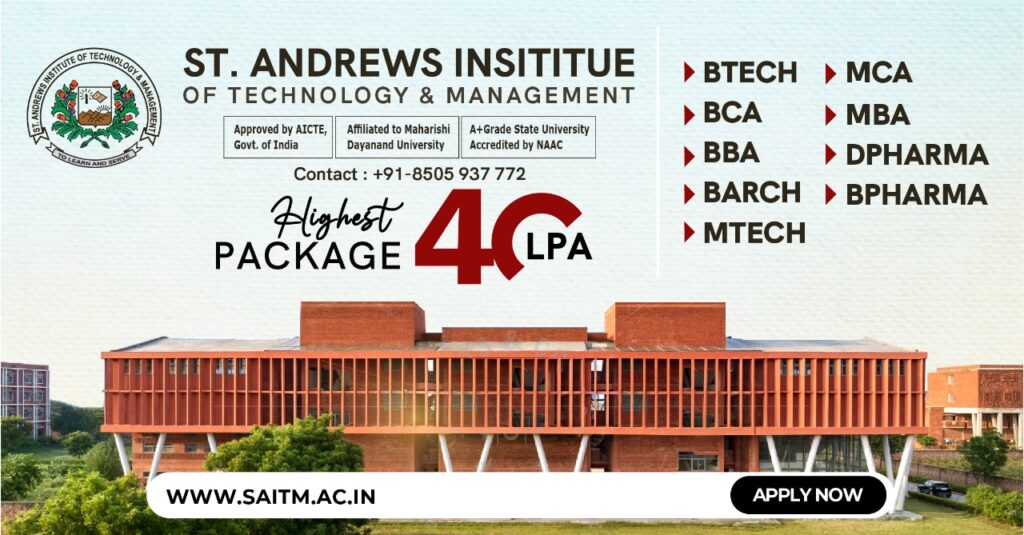
Here is a general overview of the salary ranges for some common roles in the field:
Software Developer/Engineer
Entry-level salaries typically range from ₹3-6 lakhs per annum. With experience, salaries can range from ₹6-15 lakhs per annum or more, depending on expertise and seniority.
Data Scientist/Data Analyst
Entry-level salaries generally range from ₹4-8 lakhs per annum. Experienced professionals can earn between ₹8-20 lakhs per annum or higher, especially in specialized domains like automated learning and big data analytics.
Artificial Intelligence/Machine Learning Engineer
Entry-level salaries start around ₹5-10 lakhs per annum. Experienced AI/ML engineers can earn between ₹10-25 lakhs per annum or more, particularly in roles involving advanced research and development.
Cybersecurity Specialist
Entry-level salaries typically range from ₹4-8 lakhs per annum. With experience and specialized certifications, cybersecurity professionals can earn ₹8-20 lakhs per annum or higher, depending on the organization and role complexity.
Cloud Engineer/Architect
Entry-level salaries usually start around ₹4-8 lakhs per annum. Experienced cloud engineers and architects can earn ₹8-20 lakhs per annum or more, particularly in roles requiring expertise in cloud platforms like AWS, Azure, or Google Cloud.
Network Engineer
Entry-level salaries generally range from ₹3-6 lakhs per annum. With experience and advanced certifications, network engineers can earn ₹6-15 lakhs per annum or more, depending on the complexity of the network infrastructure.
Mobile Application Developer
Entry-level salaries typically start around ₹3-6 lakhs per annum. Experienced mobile app developers can earn ₹6-15 lakhs per annum or higher, especially in roles involving development for multiple platforms and advanced functionalities.
Blockchain Developer
Entry-level salaries generally range from ₹5-10 lakhs per annum. Experienced blockchain developers can earn ₹10-25 lakhs per annum or more, particularly in roles involving development of decentralized applications (dApps) and smart contracts.
Scope of Computer Science in India
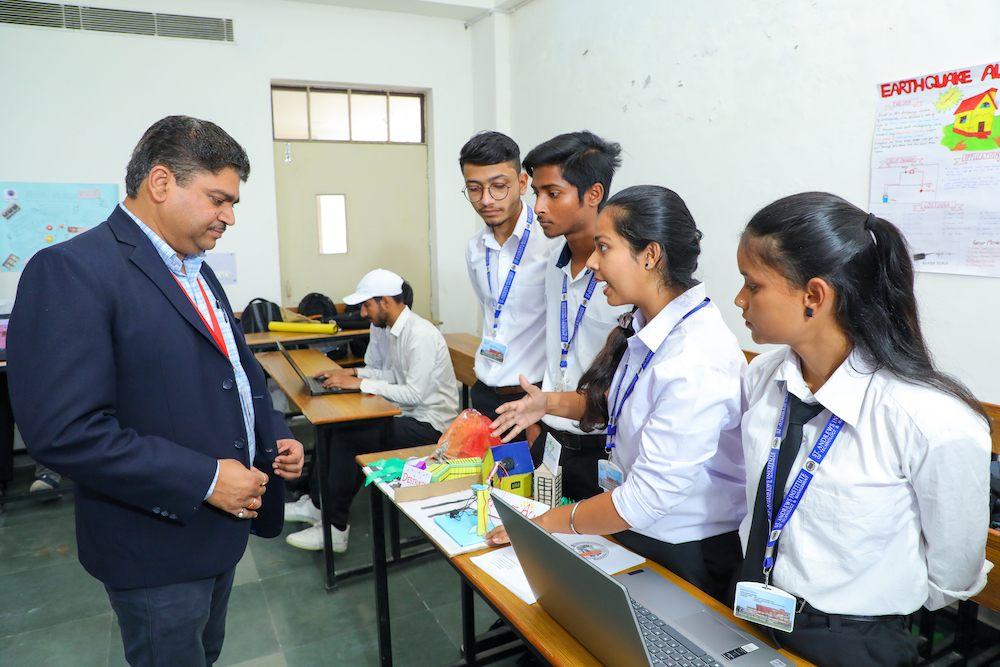
Key areas of opportunity for those completing computer science courses include:
Software Development
Opportunities abound in developing software applications, ranging from web and mobile apps to enterprise solutions.
Data Science and Analytics
With the rise of big data, there is a growing need for professionals skilled in data analysis, automated learning, and ai.
Cybersecurity
As cyber threats increase, there is a demand for cybersecurity experts to protect systems and data.
Cloud Computing
Businesses are increasingly adopting cloud solutions, creating demand for professionals in cloud architecture, deployment, and management.
Internet of Things (IoT)
IoT is expanding across industries, offering opportunities in developing connected devices and systems.
Blockchain
Emerging applications in blockchain technology require skilled developers and specialists.
Research and Academia
Opportunities exist in research institutions and academia for those interested in advancing the field through innovation and education.
Fees for BE in Computer Science
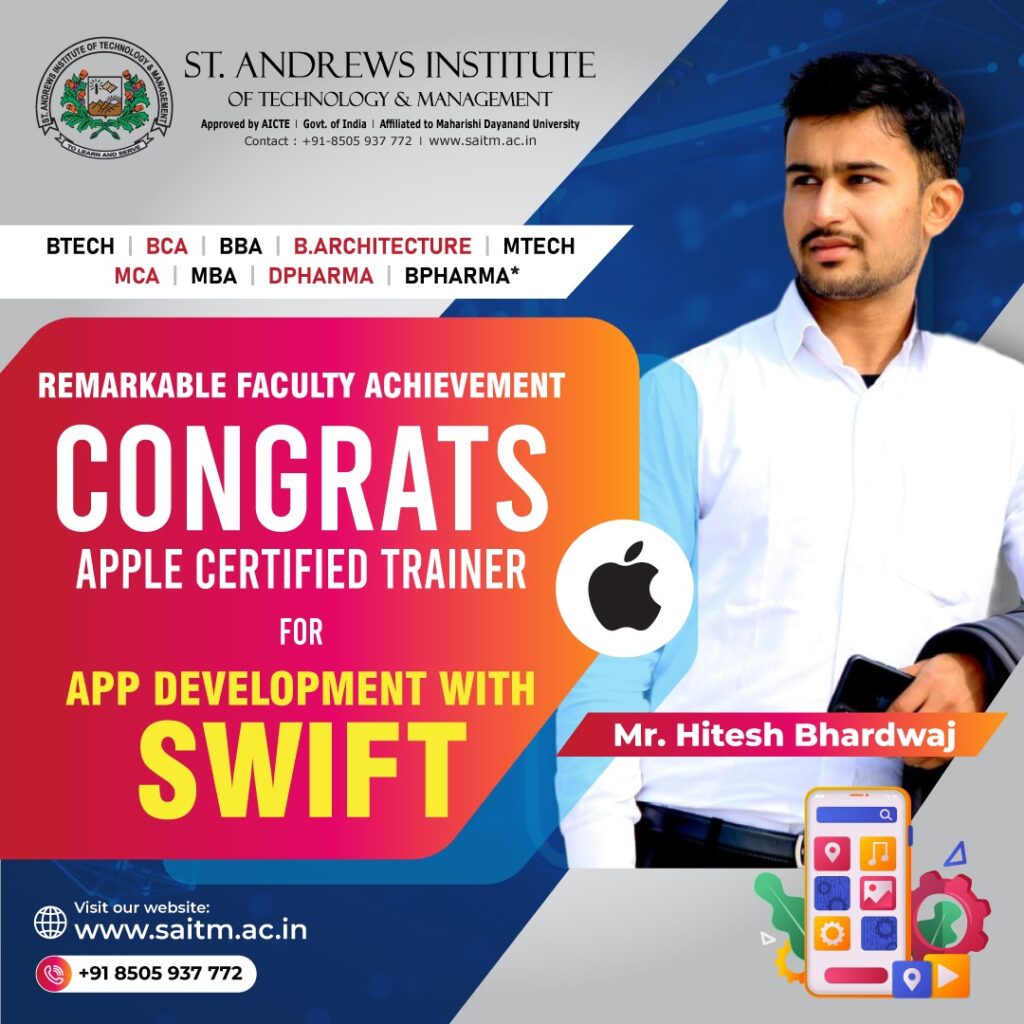
Here are some general estimates:
Public Institutions
- Government Colleges: Typically range from INR 10,000 to INR 2,00,000 per year.
Private Institutions
- Private Colleges/Universities: Fees can range from INR 2,00,000 to INR 8,00,000 per year.
- Top Private Institutions (e.g., BITS, VIT, SRM): Fees can be on the higher end, often between INR 3,00,000 to INR 6,00,000 per year.
Additional Costs
- Hostel and Accommodation: INR 50,000 to INR 1,50,000 per year.
- Books and Supplies: INR 10,000 to INR 50,000 per year.
- Other Fees (exam fees, lab fees, etc.): INR 10,000 to INR 50,000 per year.
Required Skillset for Computer Science Professionals

Computer Science professionals require a diverse skill set to excel in their careers. Key skills include:
Programming Languages
A computer science student develops proficiency in languages like Python, Java, C++, or others relevant to specific roles.
Data Structures and Algorithms
Ability to design, analyze, and implement efficient algorithms and data structures.
Software Development
Knowledge of software development principles, including design patterns, version control, and agile methodologies.
Database Management
Understanding of database systems, SQL, and data modeling for efficient data storage and retrieval.
Operating Systems
Familiarity with OS concepts, memory management, file systems, and system-level programming.
Networking
Understanding of network protocols, security principles, and configuration of network services.
Web Development
Skills in HTML, CSS, JavaScript, and frameworks like React or Angular for frontend development.
Machine Learning and AI
Basics of automated learning algorithms, data preprocessing, and model evaluation.
Cyber security
Knowledge of security principles, encryption techniques, and common vulnerabilities.
Problem-Solving and Debugging
Ability to troubleshoot complex issues, analyze root causes, and implement effective solutions.
Soft Skills
Effective communication, teamwork, time management, and adaptability in dynamic tech environments.
FAQs
Which is better, be or BTech?
In India, “BE” (Bachelor of Engineering) and “BTech” (Bachelor of Technology) are essentially equivalent degrees in terms of curriculum and career prospects.
The choice between BE and BTech often depends on the institution offering the program rather than a significant difference in content or recognition. Both degrees focus on practical application and theoretical knowledge in engineering fields.
What matters most is the accreditation and reputation of the institution offering the degree, as well as the specific specialization and opportunities for hands-on learning and industry exposure during the course of study for a Bachelor of Engineering in Computer Science.
What is the CSE salary?
Salaries in Computer Science and Engineering (CSE) vary widely depending on factors such as job role, location, experience, and industry. Entry-level positions like software developers or systems analysts typically start around ₹3-6 lakhs per annum in India. With experience and specialization in fields like ai, data science, or cybersecurity, salaries can rise significantly to ₹10-25 lakhs per annum or more.
Tech hubs like Bengaluru, Hyderabad, and Pune often offer higher salaries due to the concentration of IT companies. Globally, CSE professionals can earn substantially more, particularly in countries with strong tech industries and higher living costs.
Why Study Software Engineering?
Studying Software Engineering provides practical knowledge crucial for a dynamic sector at the heart of modern technology. The Bachelor of Engineering in Computer Science prepares individuals to design, develop, and maintain software systems, which are vital in various industries including healthcare and finance. With global demand for software engineers, this field offers numerous opportunities for innovation and significant impact.
They collaborate in diverse teams, solve complex problems, and contribute to the advancement of technology. With rapid digital transformation across sectors, becoming a software engineer offers a stable career with potential for growth, entrepreneurship, and continuous learning in emerging technologies like AI, cloud computing, and cybersecurity.
Which is better, CS or CE?
Choosing between Computer Science (CS) and Computer Engineering (CE) depends on career interests and goals. CS focuses more on application development, algorithms, and theoretical foundations of computing.
It’s ideal for those interested in software applications, data science, and AI. The Bachelor of Engineering in Computer Science blends hardware and software aspects, covering topics like computer architecture, embedded systems, and electronics. It suits those interested in hardware-software integration, system design, and IoT.
Both fields offer diverse career opportunities, but CS may be more software-centric, while CE leans towards hardware and systems integration. The choice should align with personal interests, desired skills, and career aspirations in technology.
What is the subject of Bachelor of Science in computer engineering?
The Bachelor of Science in Computer Engineering (BSc Computer Engineering) typically integrates computer science and computer hardware engineering topics. Key subjects include digital logic design, computer architecture, application development, operating systems, and programming languages. The curriculum, part of the Bachelor of Engineering in Computer Science, also includes courses in electronics, circuits, signal processing, and telecommunications.
Computer Science students learn to design and integrate computer systems, emphasizing both hardware and software aspects. This degree prepares graduates for careers in areas like hardware development, system integration, telecommunications, and embedded systems engineering, among others. computer hardware

